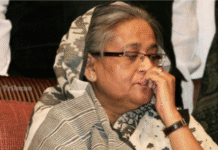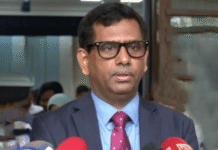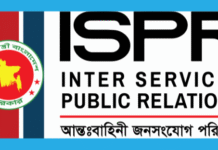Heroin is the most frequently abused drug in Bangladesh followed by codeine contained in cough syrups, while the third most abused one is cannabis, says a UN report released in March.
Recently, Yaba has become one of the three main non-pharmaceutical drugs abused in Bangladesh after heroin and cannabis, says the report, ‘Report of the International narcotics Control Board for 2012.
Drug abuse in Bangladesh is spreading from urban to rural areas, with indications that this is particularly the case for ‘Yaba’. There is also evidence that drug abuse among children in Bangladesh is increasing, the report says in its South Asia section.
The total number of people receiving drugs abuse treatment in Bangladesh was approximately 2,500 in 2010.
According to the report, South Asia continues to face diversion of and trafficking in pharmaceutical preparations containing internationally controlled substances and a serious problem of abuse of prescription drugs and over-the-counter pharmaceutical preparations.
Pharmacies represent of the key points at which diversion occurs and drug abusers are often able, in all countries of the region (South Asia), to obtain prescription pharmaceutical preparations containing internationally controlled substances without a prescription.
In some cases, the report says, diversion also occurs from manufacturers. As well as being sold within the region, the diverted pharmaceuticals are also trafficked on to other countries, in significant part through illegal internet pharmacies.
The main problem behind the diversion of trafficking in prescription pharmaceutical preparations appears to be that enforcement of national laws and regulations designed to control those preparations is weak, though the regulations and the laws themselves are largely adequate.
At the pharmacy level, for example, it is common for pharmacies to lack a qualified pharmacist in some countries in South Asia.
In all countries in South Asia, the main reason for weak enforcement of regulations is weaknesses in the organizations responsible for regulating pharmacies and pharmaceutical manufacturers, in particular a lack of monitoring/inspection personnel, according to the report.
It says there is also insufficient awareness of enforcement of powers and the extent of the problem.
International Narcotics Control Board has urged the governments in South Asia to strengthen the enforcement capacity of their national agencies responsible for regulating pharmacies that dispense pharmaceuticals containing narcotic drugs and psychotropic substances.
Source: UNBConnect










